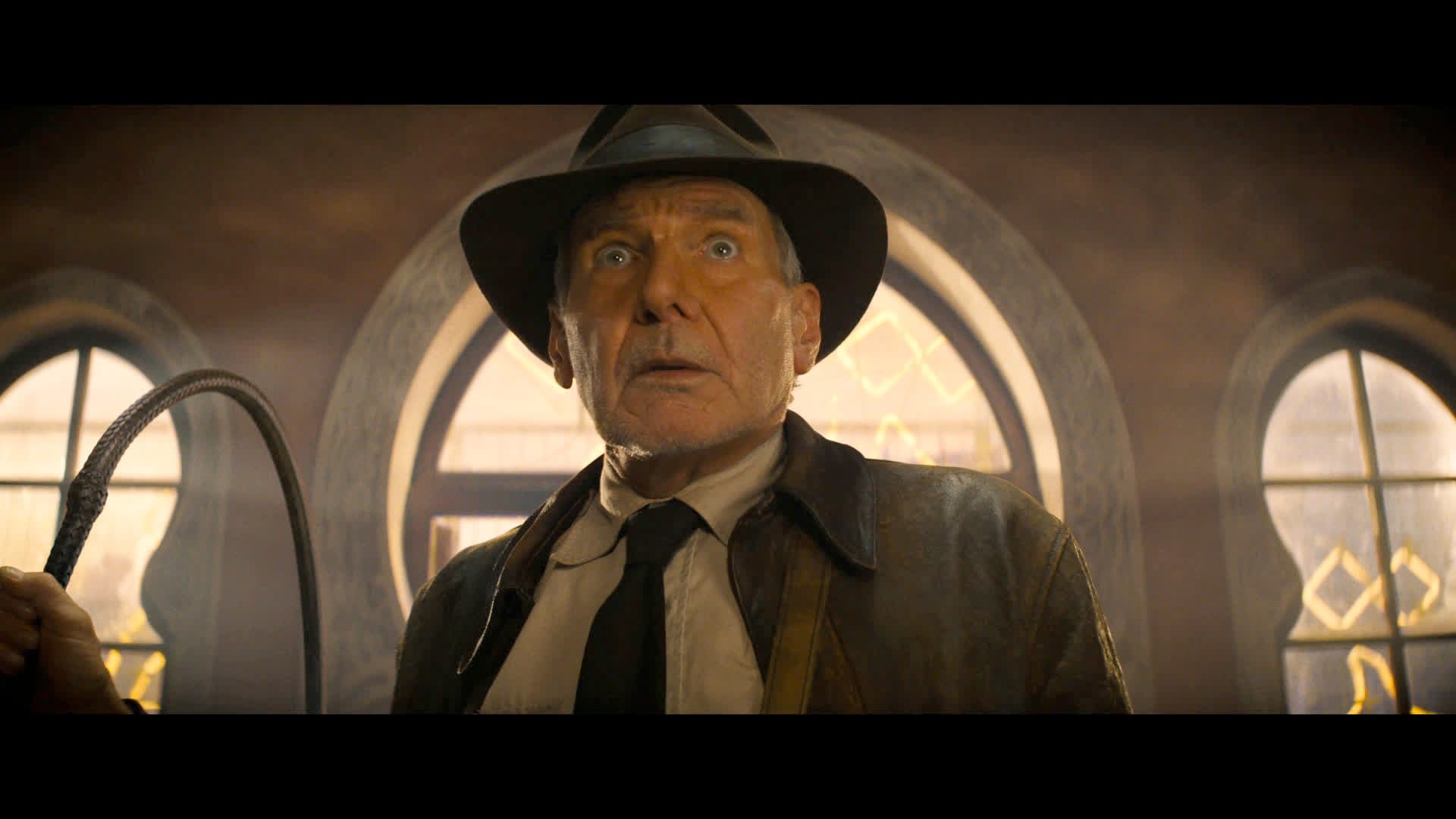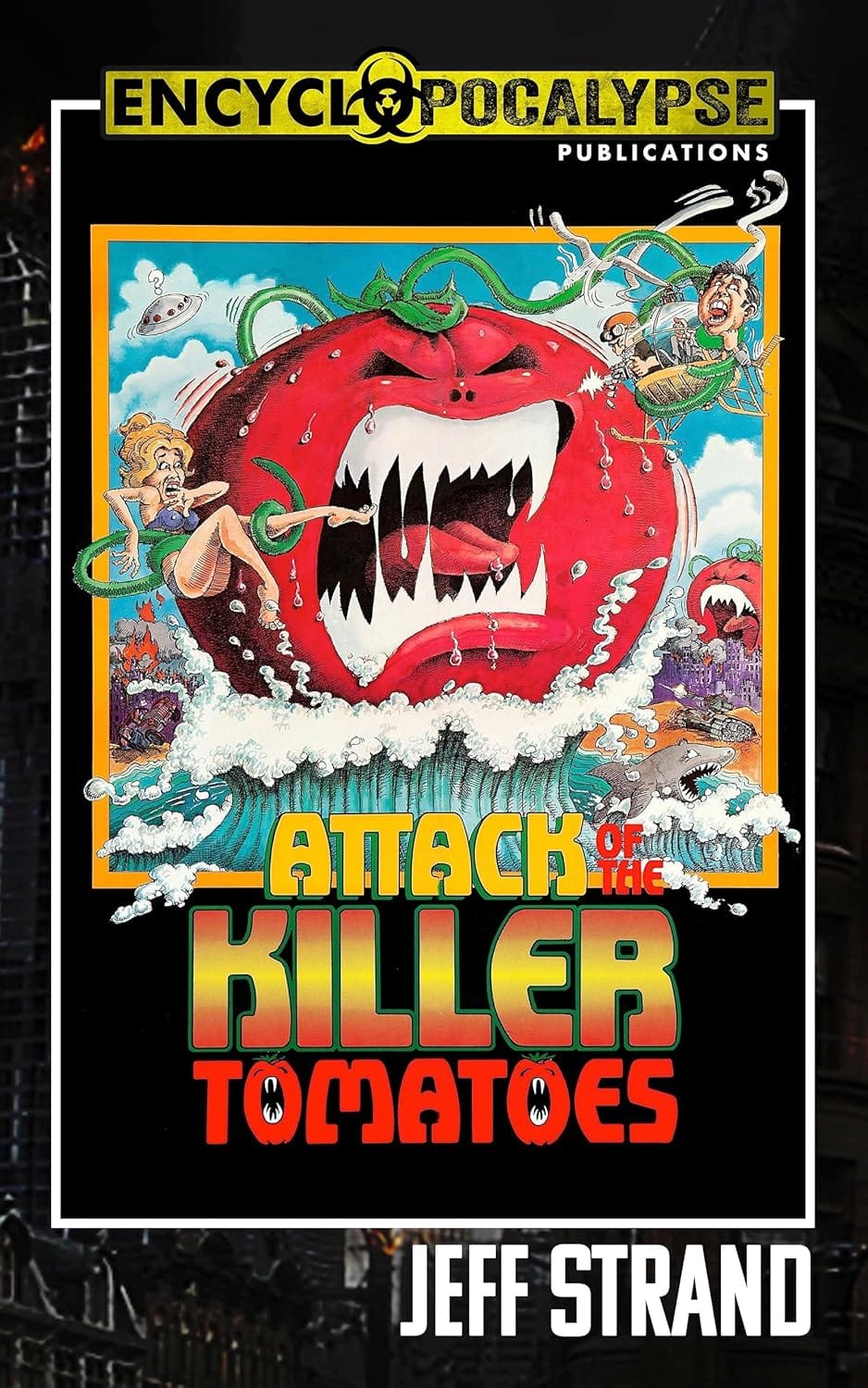Hollywood & Spine Archive: Requiem for a Paperback
A look at the state of novelizations, originally published in June 2023.

Reading this back was kind of funny. For one thing, I haven't written more than two Hollywood & Spine entries since this was published just over a year ago, and none of them were written this calendar year. (To be fair, I've had...a lot going on.) I'm not sure how I feel about that, sometimes: as a writer, you often want "more," whatever that is, but this project has always done exactly what I want it to do and then some, which is nice. (Case in point: I'm actually quoted in this great piece that published on Inverse recently about a slightly different film-to-book trend.) For another, though: this overview of what novelizations are like now hasn't particularly changed since I wrote this - bless me for even remotely entertaining the idea that movies as apparently incomprehensible as Rebel Moon were going to change things - and I don't particularly love how niche or cult objects of appreciation get talked about like incomprehensible things today. It's a book version of a movie, not obsolete technology or dead langages. But I guess that's just how it goes! (originally published 6/30/2023)
Is the novelization dead?
This weekend, Indiana Jones and The Dial of Destiny - the fifth and, I think it's safe to say, final installment featuring Harrison Ford's fedora-sporting adventurer - hits theaters. Much has changed in the 15 years since the fourth Indiana Jones film took its own belated bow, and I'm not talking about how Indy co-creator George Lucas and director Steven Spielberg serve this new picture only as executive producers, or how the distributor is The Walt Disney Company instead of Paramount Pictures (all five films were produced by Lucasfilm).
No, for the first time, an Indiana Jones film is being released without a novelization to go with it. Such things were once standard: Campbell Black's adaptation of Raiders of The Lost Ark was covered here, and James Khan, Rob McGregor and James Rollins would adapt the sequels. Today, however? Nothing - and it's honestly not hard to be surprised. Besides the strange state of print media in the 21st century, there are a few factors as to why a Dial of Destiny paperback isn't making its way to a Barnes & Noble. The time seemed right to go through them, why it might never change, and why you shouldn't be worried about Hollywood & Spine either way.
The spoiler zone: In 2008, two big Marvel Comics films, Iron Man and The Incredible Hulk, invented the Marvel Cinematic Universe, a sprawling art-meets-commerce collective of comic book heroes interacting in more than 30 increasingly bloated movies and fistfuls of TV shows besides. Reading any review of these pictures is an exercise in futility, partially because Disney, Marvel Studios' owner, at the very least suggests that critics not spoil even the most basic of plot points in their reviews.
If the House of Mouse behaves that way toward a writer attempting to explain a brief outline and assessment of a movie in a few paragraphs, it's a safe bet they maintain that iron grip elsewhere, too. No Marvel Studios films beyond those first two has received its own novelization. And Disney's other major fantasy tentpole, Star Wars, issued most sequel trilogy-era novels around the films' video releases (explicitly marketed as "extended editions" featuring all those extra scenes and bits you'd want out of such books).
The Disney factor: In 2020, author Alan Dean Foster noticed that the small but pivotal royalties accrued on his prose adaptations of Star Wars and Alien films were no longer showing up. Disney, which acquired the rights to said films (and ancillary media) with the acquisitions of Lucasfilm and 20th Century Fox, claimed that buying those contracts didn't necessarily mean they had to honor them.
This frankly insane move led to an unprecedented public statement from the Science Fiction Writers' Association, and more eyes on the novelization community than usual. I wouldn't file it under pure "vengeance," but I can absolutely see Disney not wanting to remind themselves of such trouble with another tie-in book to a franchise that's not nearly as important to them as the space one that's still going.
The ever-changing times: But it's not just Disney. The biggest "high-profile" novelizations of the last few years have mostly been for tentpoles like Godzilla vs. Kong and the new Halloween trilogy, or Quentin Tarantino's own overlong adaptation of Once Upon a Time in Hollywood. (Had such a book actually come out in the '60s, it would be half as long. Trust me, I know.) Sure, you get exceptions - the two Happy Death Day films got one novelization - but the genre entertainment that fuels such printings, whether it's a big franchise (Ghostbusters sequels) or is possibly going to be (M3GAN), just isn't a guarantee of such a book anymore.

So what's next? I started by asking "is the novelization dead," and in current terms, I might be right. But that's what they said about vinyl, too. Revival is always around the corner: just ask Encyclopocalypse Publications, who are printing new novelizations to old horror/cult classics like Attack of the Killer Tomatoes or reprinting adaptations of favorites like Fright Night or Re-Animator. The studio Severin Films has done similar work commissioning adaptations of the low-end horror flicks they make high-end video releases for. The subject of novelizations is always weird enough for mainstream journalists to examine every few years. The small but devoted novelization fan community is big enough to support not one but two great podcasts on the craft (hello, I Read Movies and Authorized!), and author David Spencer appears to have a book on novelizations coming out in the not-too-distant future.
No matter how many or how few novelizations there are today, there are plenty from the past waiting for a place in the Hollywood & Spine archives. We'll keep writing about them if you keep reading - and probably even if you don't. And perhaps hope exists in the oddest of places: during research for this column, I stumbled upon a listing for a forthcoming novelization of Rebel Moon, a sci-fi epic due from Netflix and Zack Snyder this Christmas. The pages keep turning...
